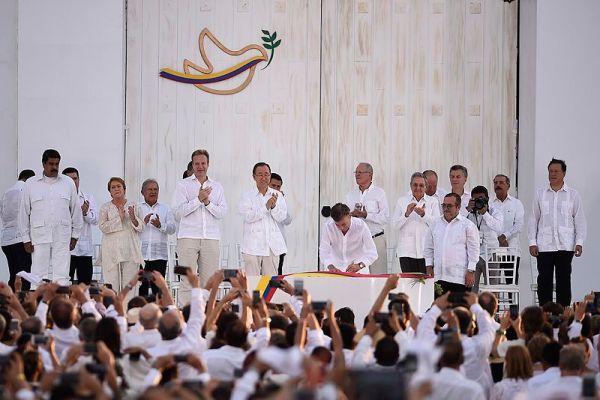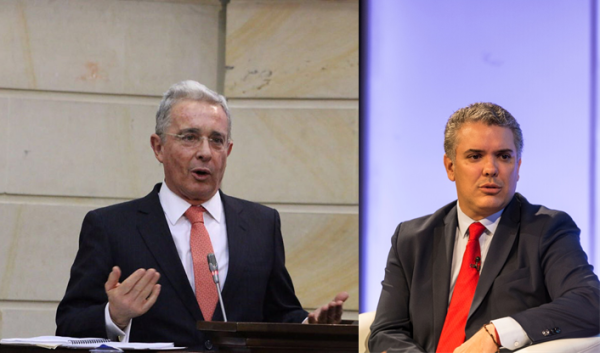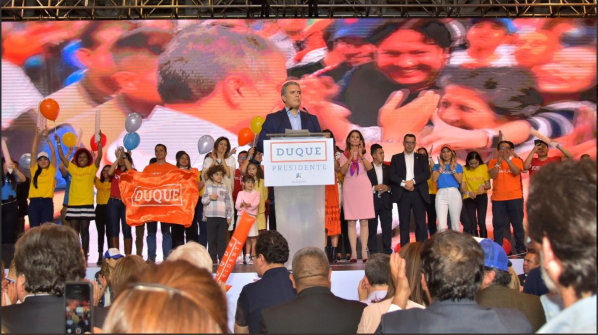By Héctor Silva Ávalos*

Mural of the martyrs of the UCA/ GuanacoSolido503/ Wikimedia Commons/ Creative Commons License (not modified)
The trial of Salvadoran Colonel Inocente Orlando Montano, which began last week in Madrid, provides El Salvador a historic opportunity to learn from the past and reduce impunity in the future, but the government and elites appear unlikely to seize it. Montano is the only defendant in the trial for the murders of six Jesuit priests, five of them Spanish nationals, and two domestic staff on the campus of the Central American University in November 1989. The eight were killed by a Salvadoran Army unit trained by U.S. advisors in what was the last massacre of El Salvador’s civil war (1980-1992) and the first great cover-up by the Salvadoran judicial system of the post-war period, starting with evidence-tampering and later other obstructionism by then-President Freddy Cristiani.
- In the 31 years since, successive presidents, attorneys general, and supreme courts have failed to prosecute the Salvadoran military high command for ordering the murder of the Jesuits and their helpers. Not even the two FMLN presidents, who governed from 2009 to 2019, took judicial action despite promises to seek justice for them. President Mauricio Funes, the first of them, actually protected a group of former high-ranking military officers that a Spanish Justice alleges were masterminds of the massacre.
- Despite the country’s political progress since the war, the failure to bring the perpetrators to account has bred a system in which even younger Salvadorans have been raised believing that it is best not to mess with the wounds of the past. People are afraid to condemn impunity, which remains one of the country’s most enduring and democracy-threatening challenges.
President Nayib Bukele, who was elected last year as an outsider committed to ending the corruption of both the FMLN and its conservative counterpart, ARENA (1989‑2009), appears reluctant to grasp the Madrid trial as a way to promote accountability and end impunity. He so far has not made a public statement about it and in recent months has increasingly relied on the corrupt and authoritarian institutions whose legacy is on trial. Some of the police officers, lawyers, and politicians that were part of the cover-up are still active in El Salvador. Some police officials who obstructed the Jesuit investigation are now high-ranking officers in the Policía Nacional Civil (PNC) and, according to a variety of evidence, continue to promote a culture of impunity.
- Bukele and his ARENA and FMLN counterparts in Congress are occupied in a never-ending confrontation over the COVID‑19 pandemic and resulting economic crisis. Moreover, the President’s security agenda, focused on crushing the gangs, has followed the path of his predecessors, giving the military enhanced powers and nudging the civilian police force back to its military roots. Bukele’s chief of police recently appeared in public wearing a military uniform, possibly violating laws passed in 1992 in fulfillment of the Peace Accords.
These political compromises and alliances and competing priorities seem likely to keep El Salvador from embracing the historic opportunity presented by the Madrid trial – not just to bring justice to the victims of the UCA massacre, but to address the entrenched culture of impunity that has marked Salvadoran politics and its justice system for decades.
- The United States, the Organization of American States (OAS), and others advocating human rights and transparency also seem likely to miss the opportunity the trial gives them to promote their stated values. The views of political players in Washington today reflect the same schizophrenia visible in the 1980s – with Democrats on Capitol Hill pushing for investigations into the massacres while the Republican Administrations allied themselves with the government and military. (The George H.W. Bush Administration even acquiesced in the harassment of witnesses, including a U.S. military official, who offered important information about the Salvadoran Army’s role in the Jesuit murders.) During the Obama Administration, the State Department gave key support to the extradition of Montano to Spain. Washington risks, once again, overlooking its own responsibilities in these horrible crimes of the past and the damage done to Central America’s fragile democracies.
June 16, 2020
* Héctor Silva Ávalos is a senior researcher and editor at InSight Crime and former CLALS fellow.









